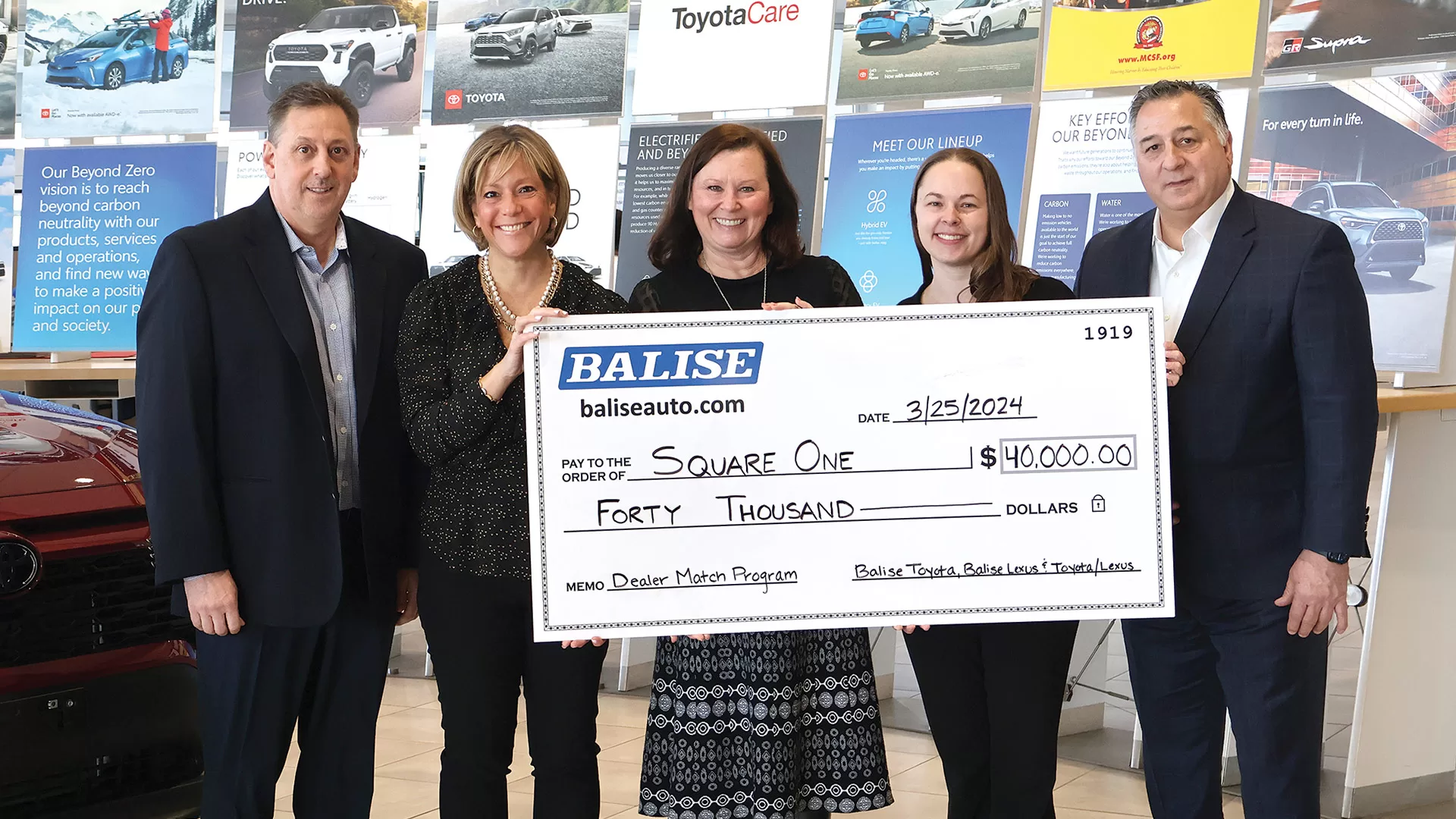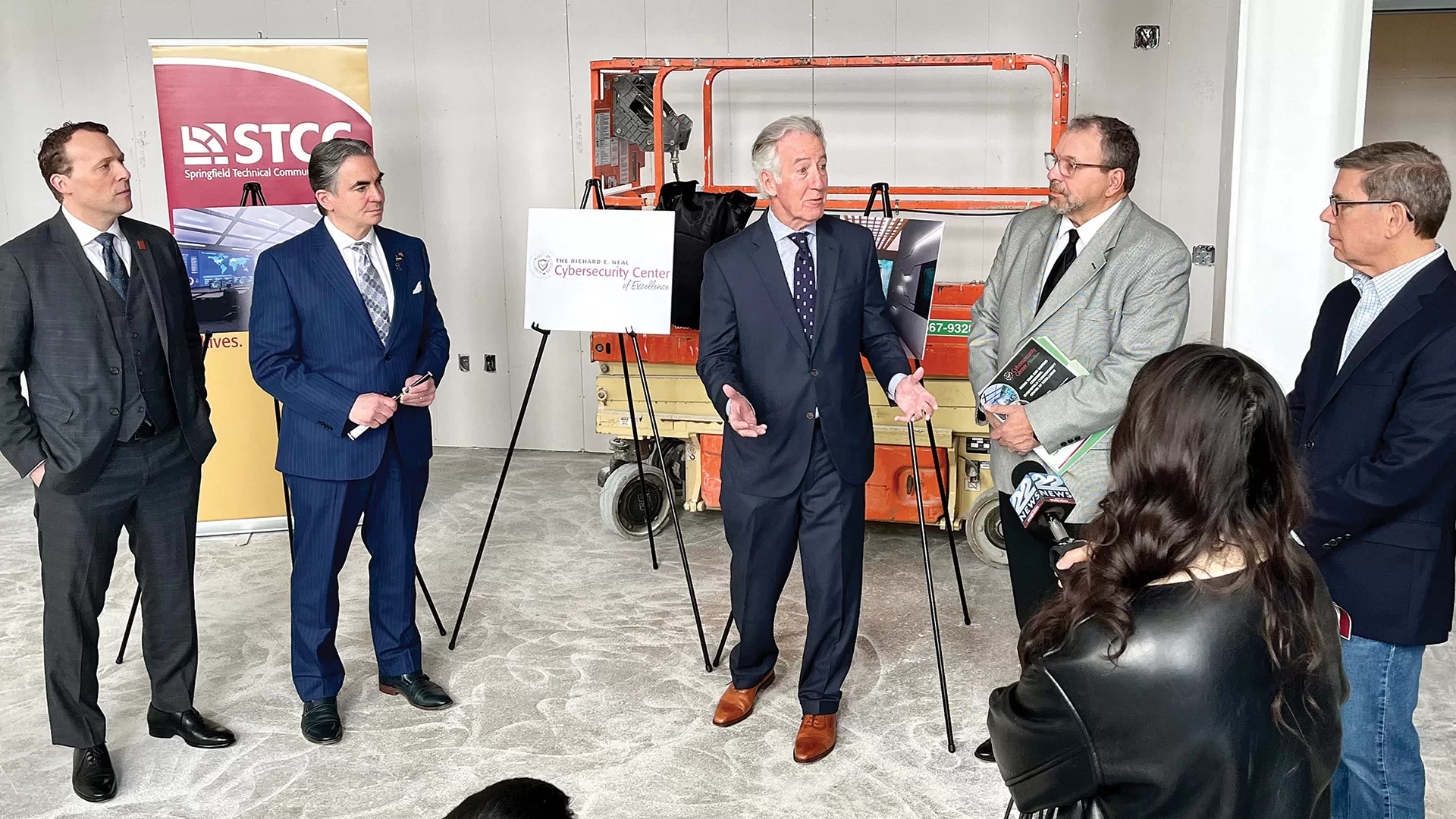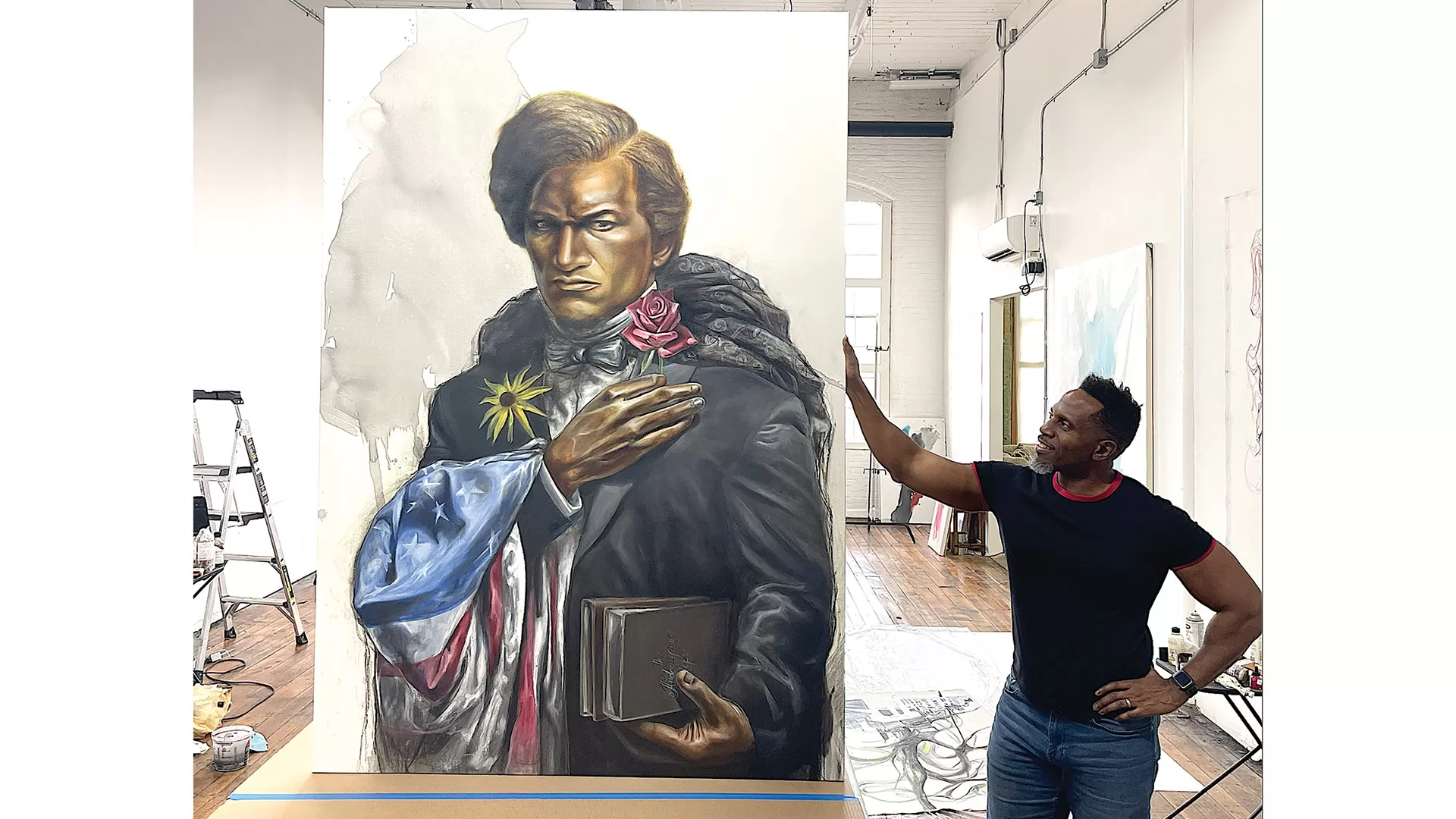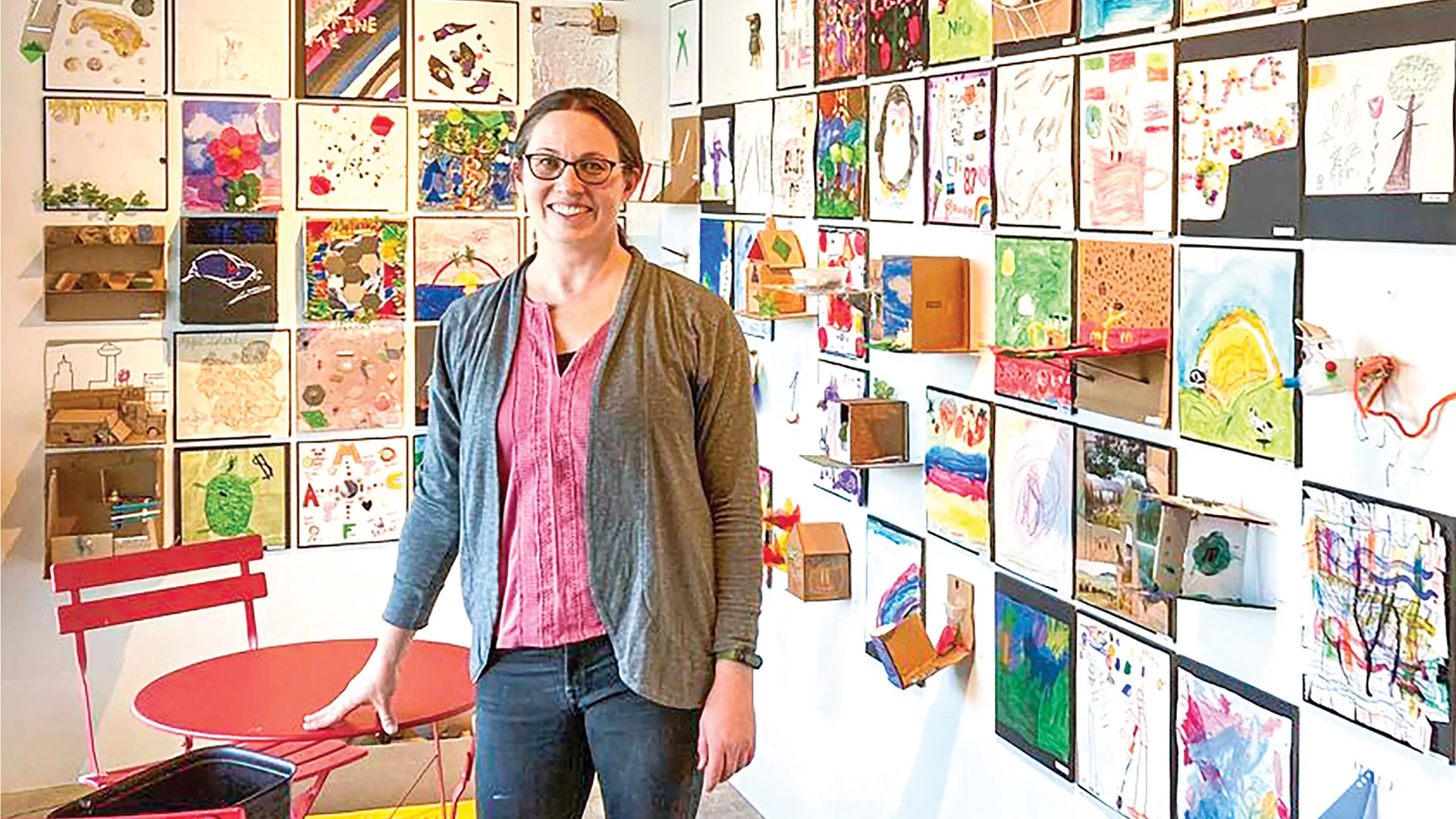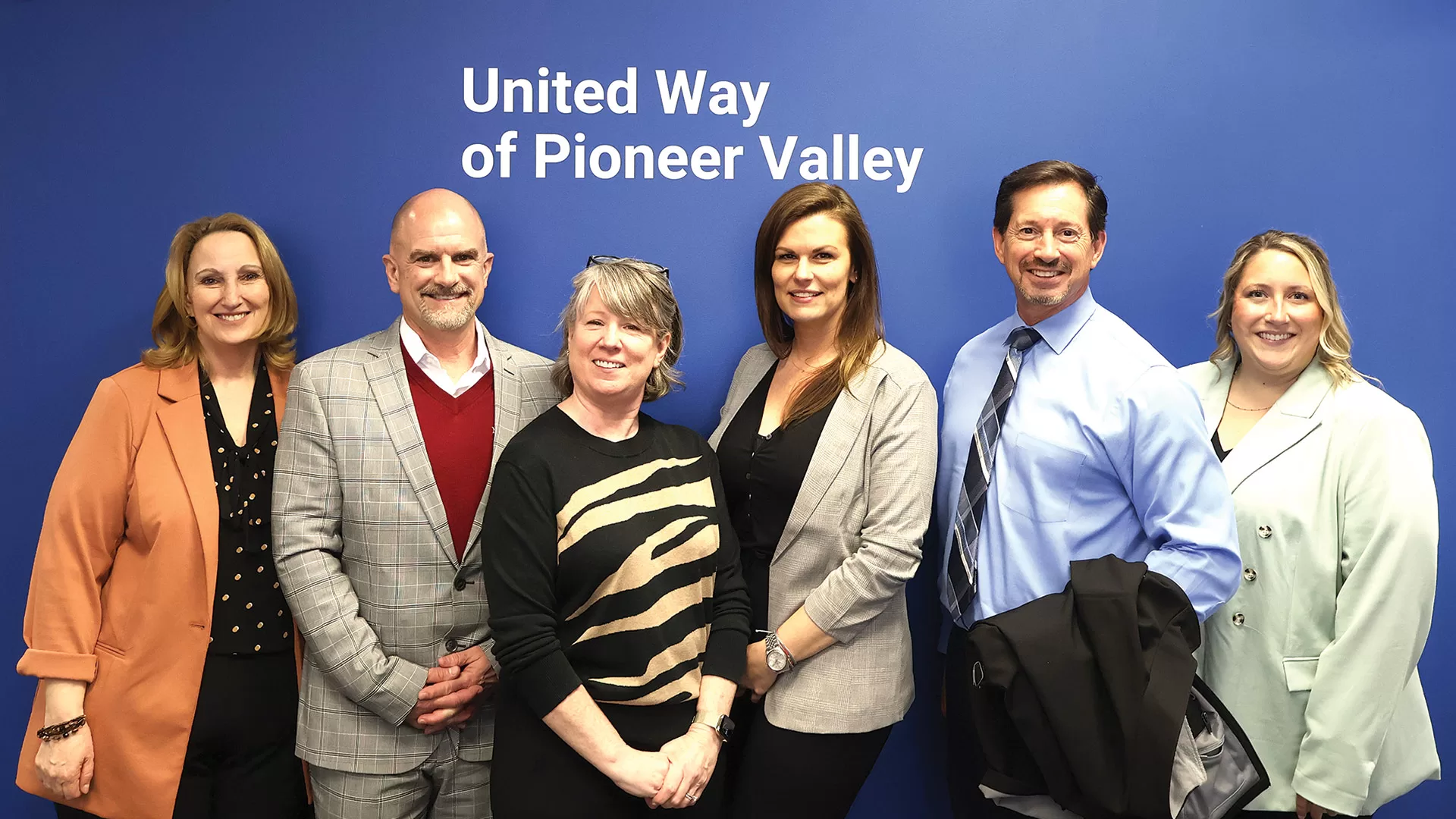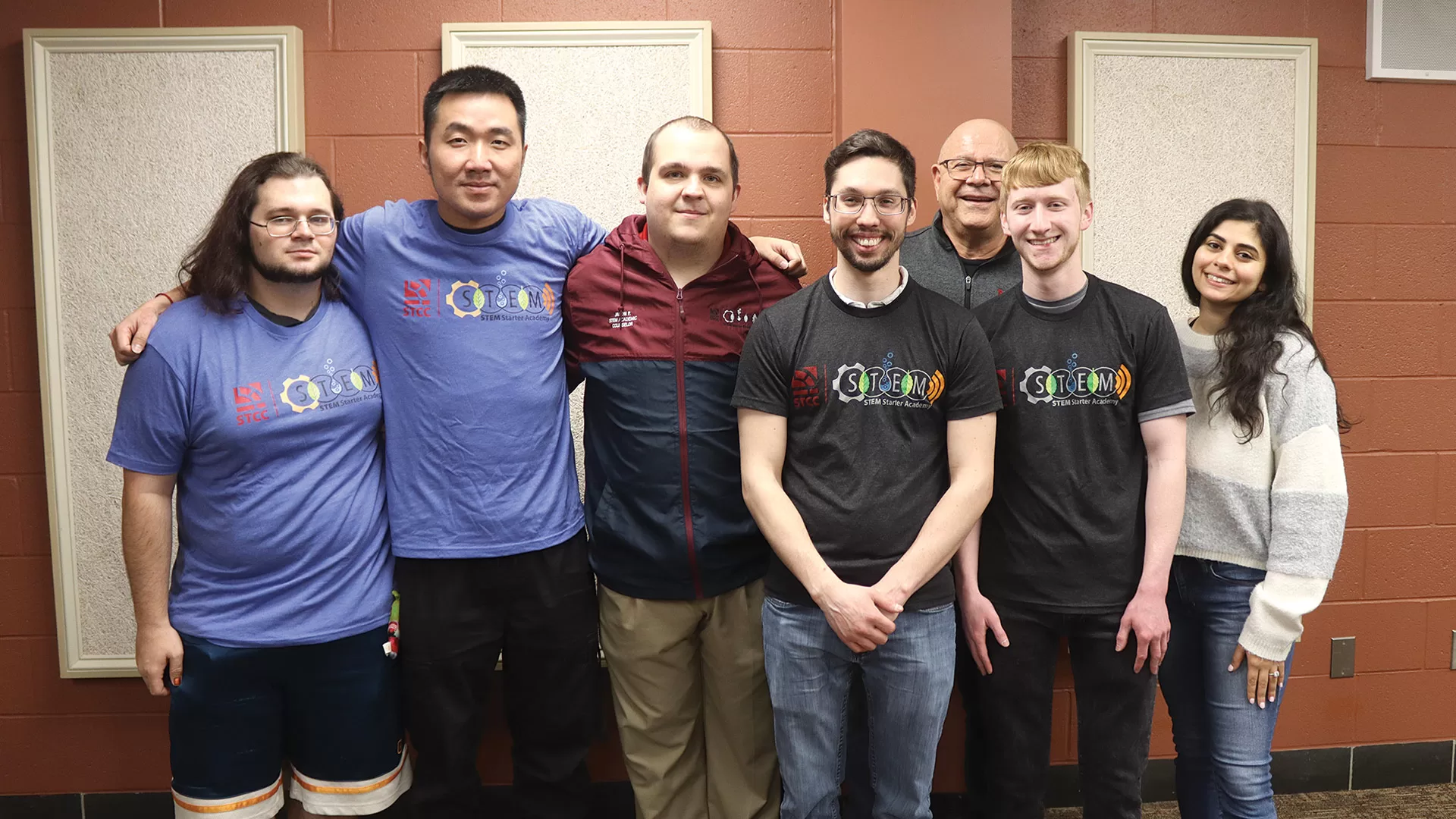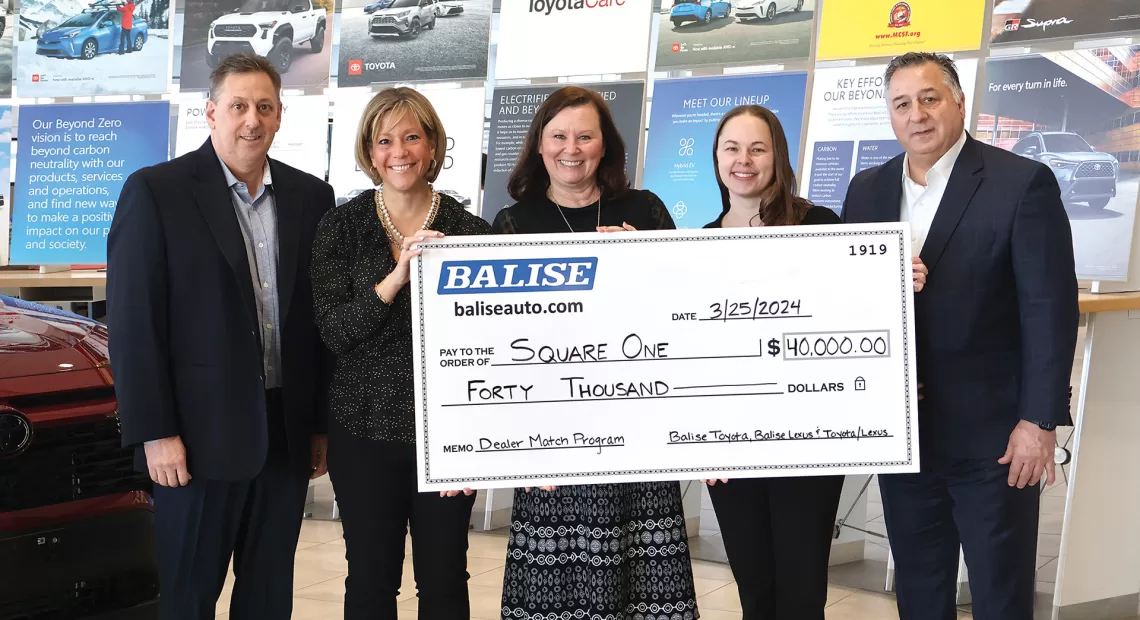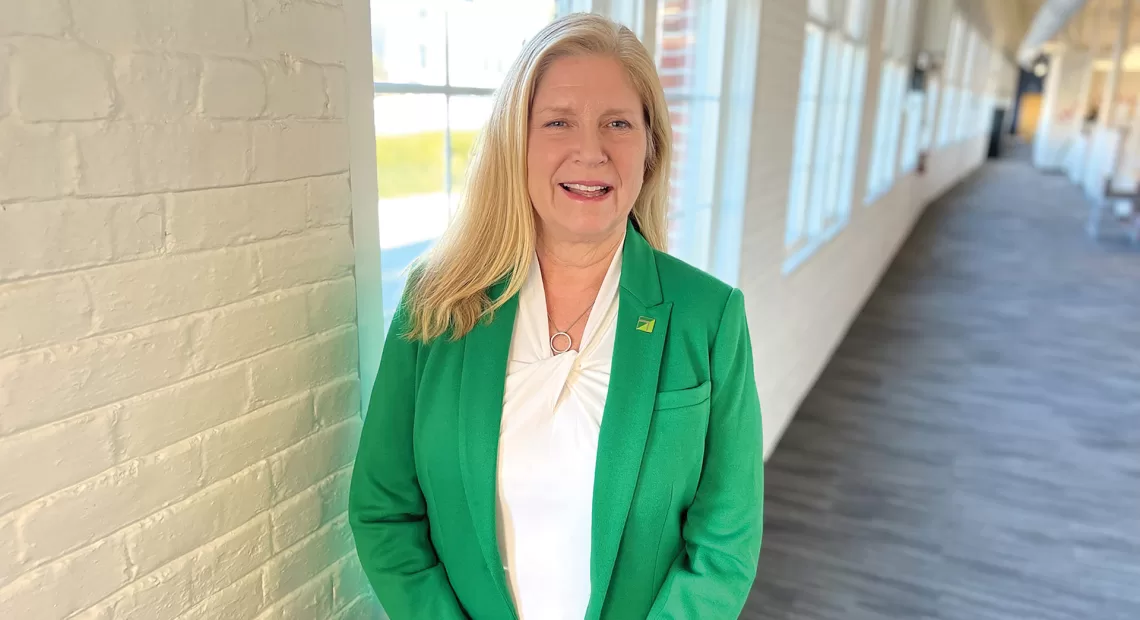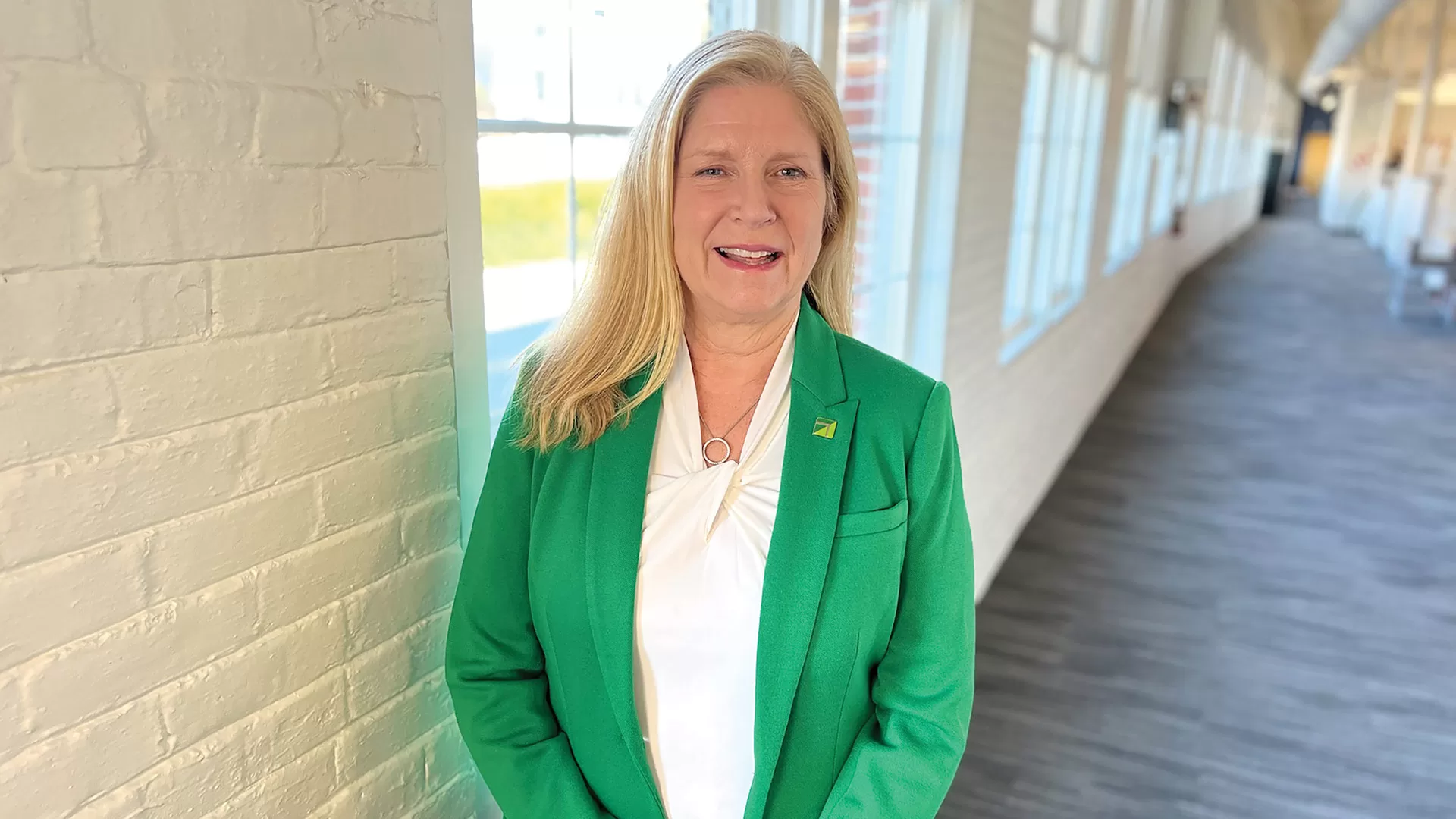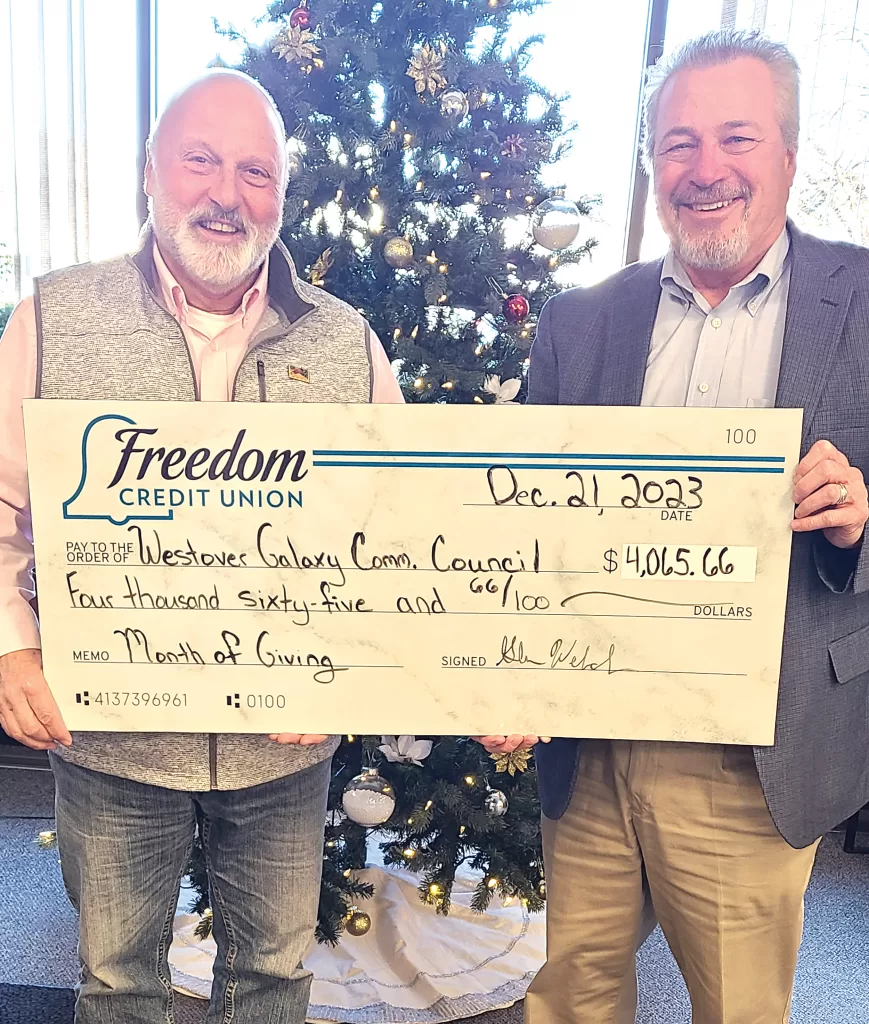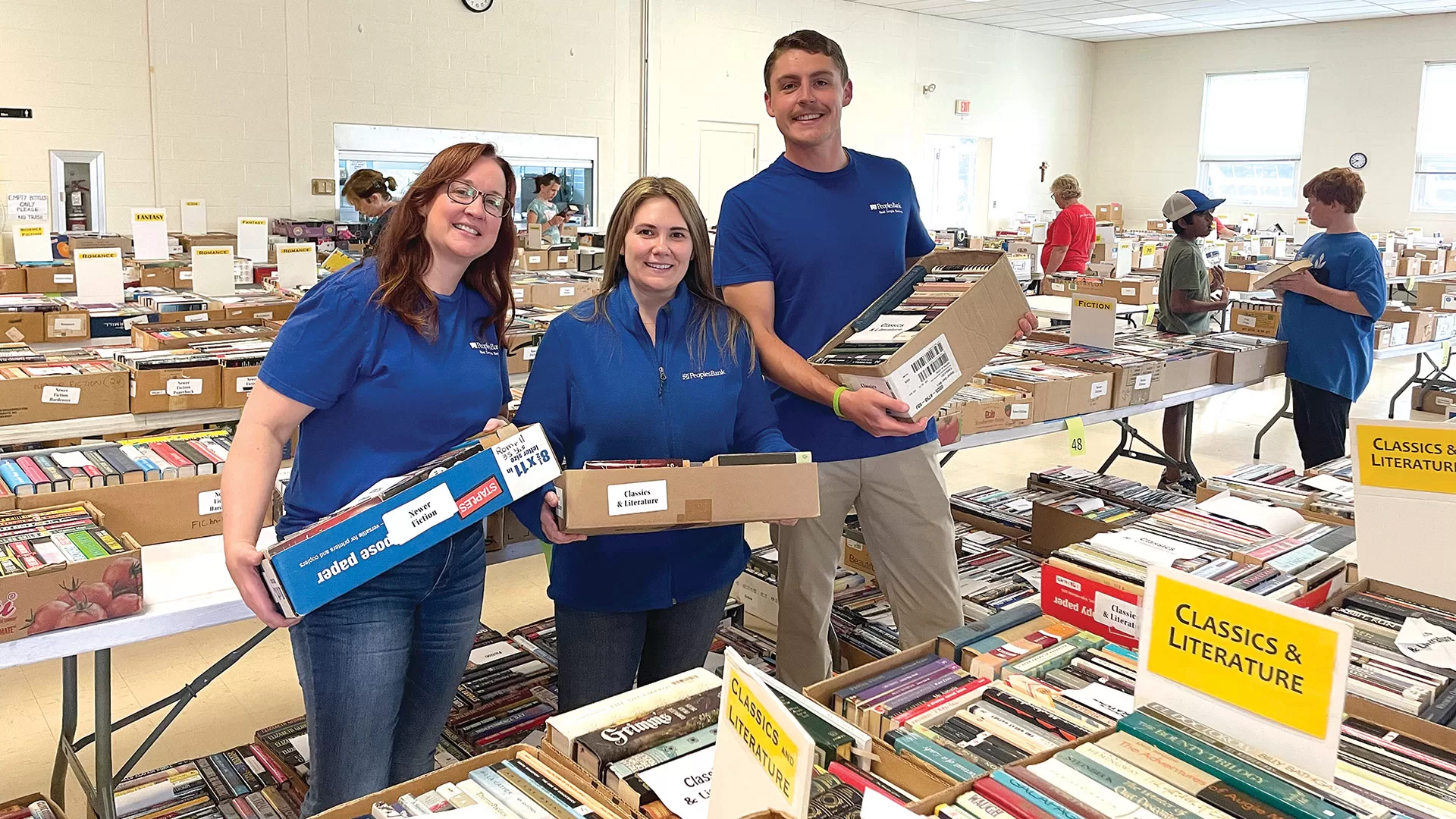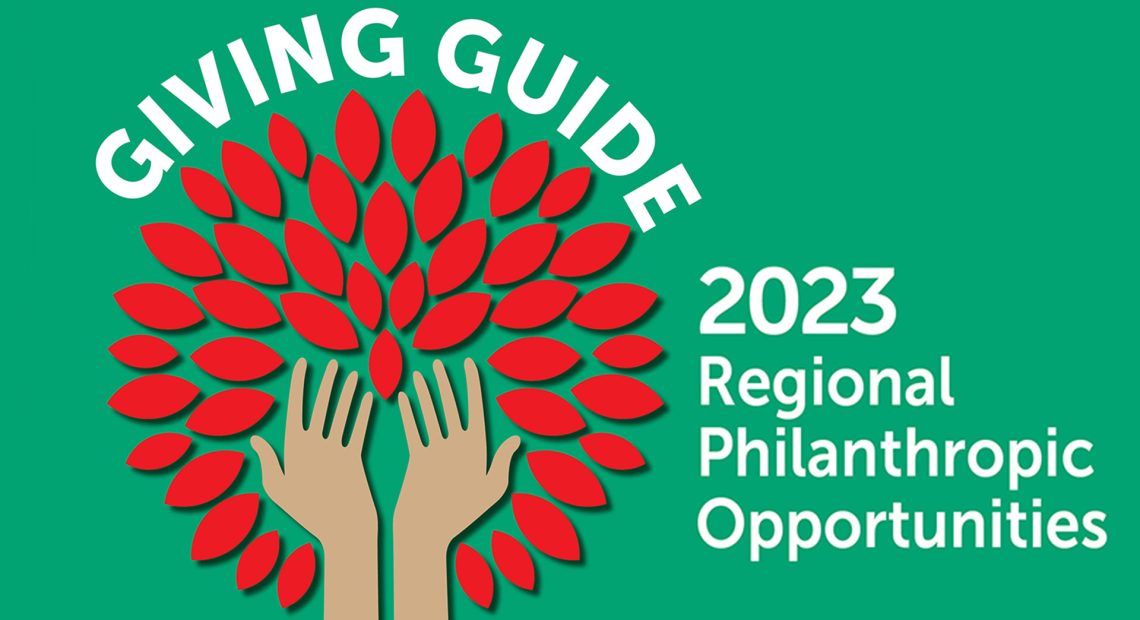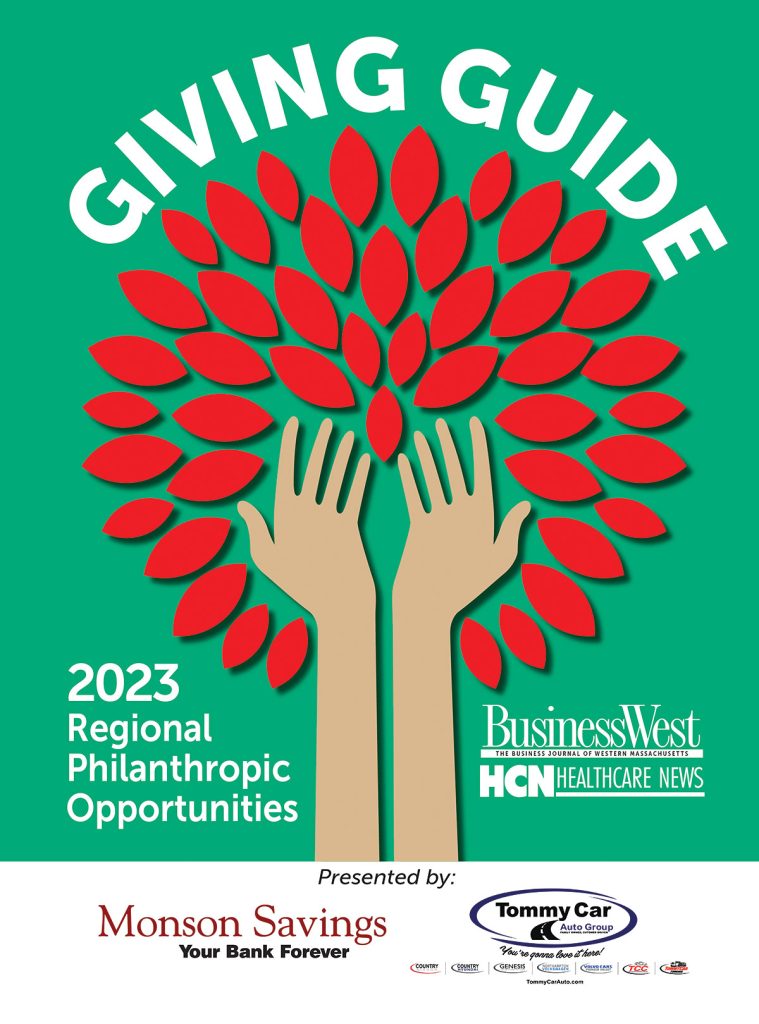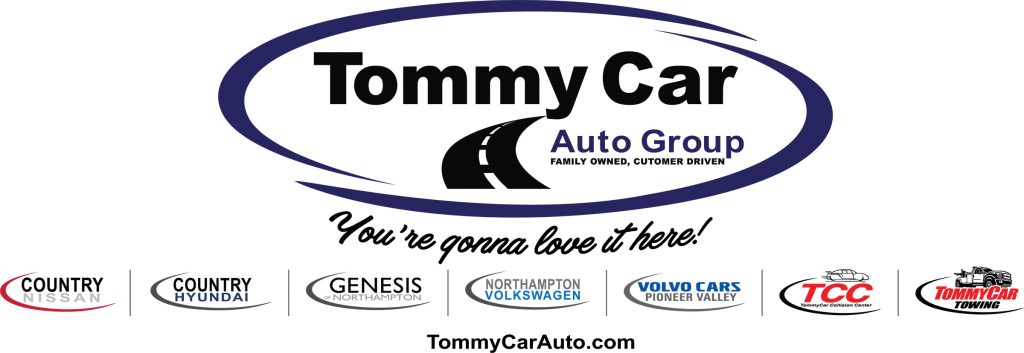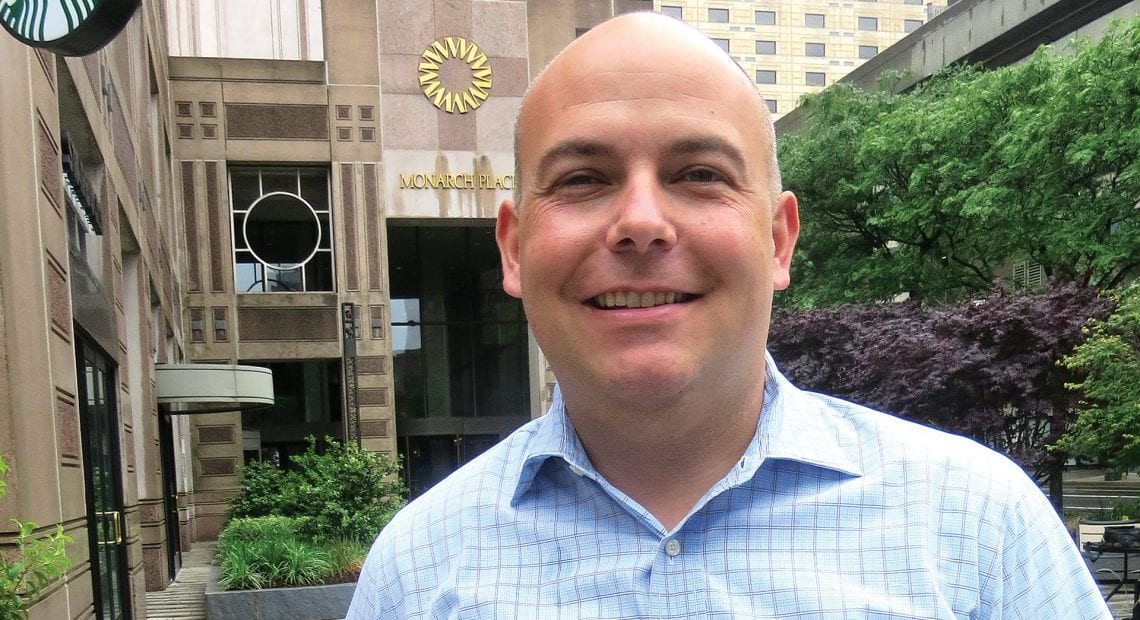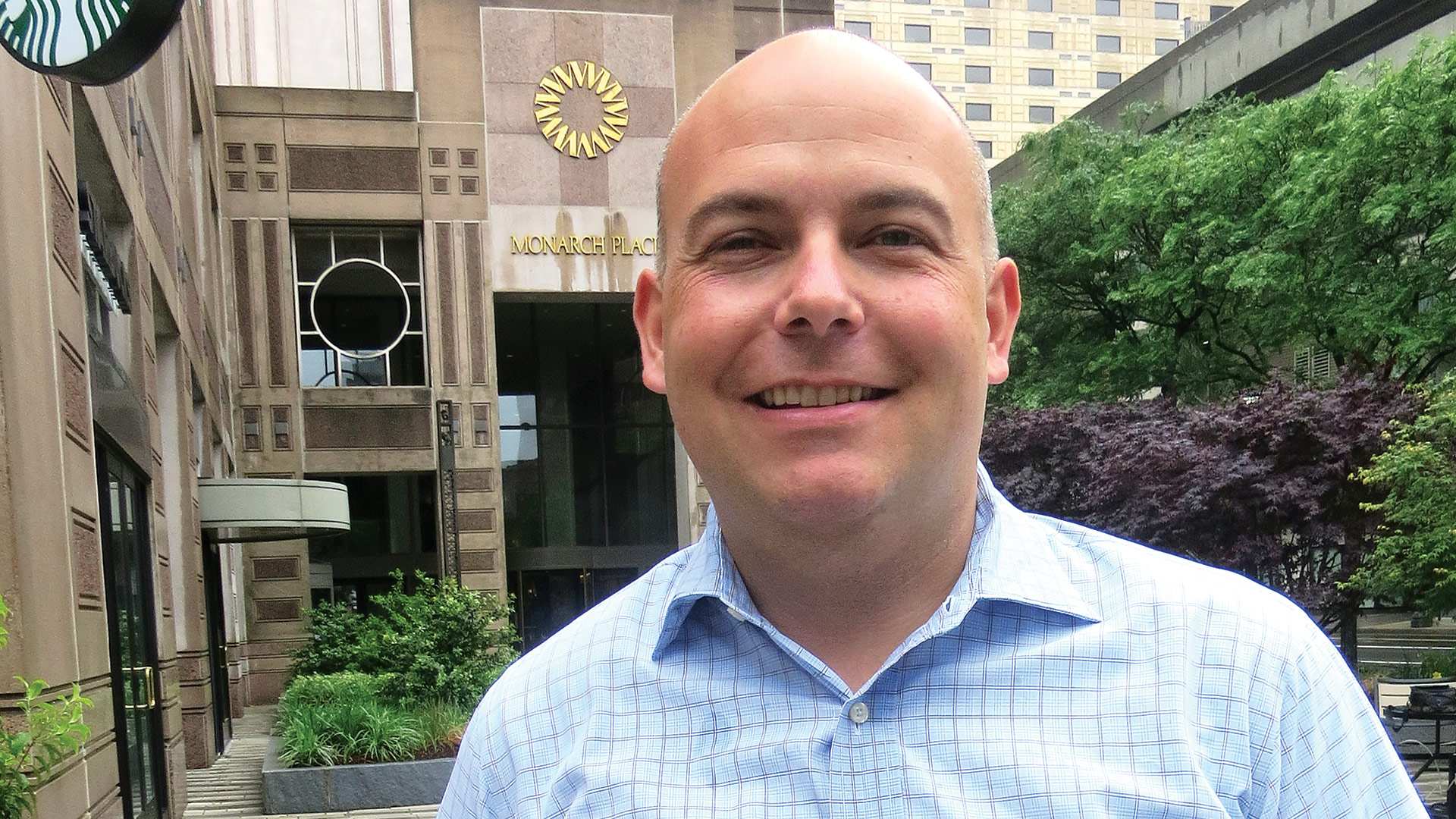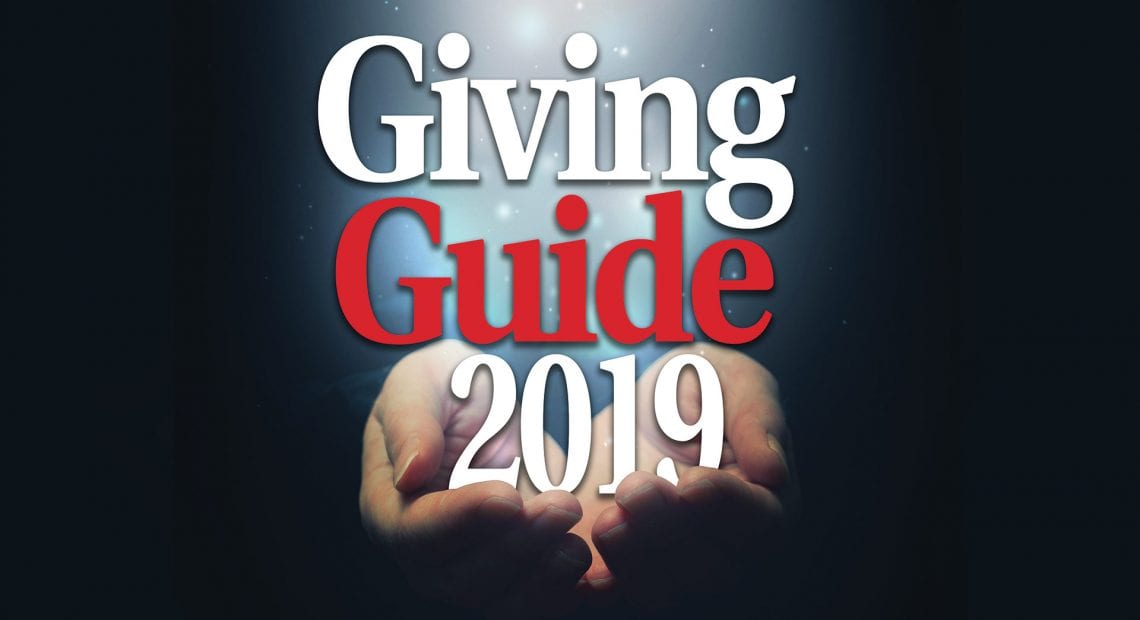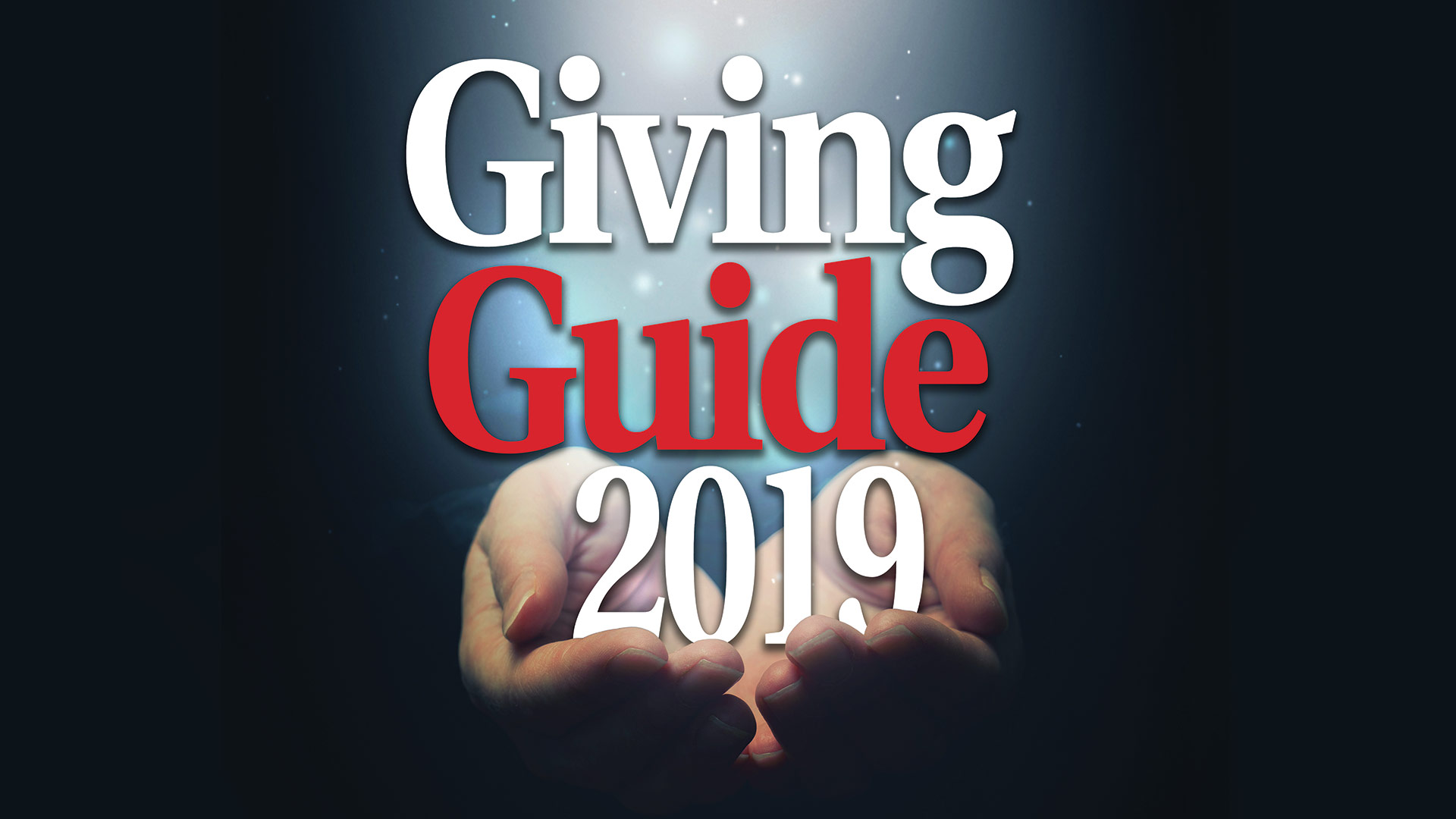Checking on the Community
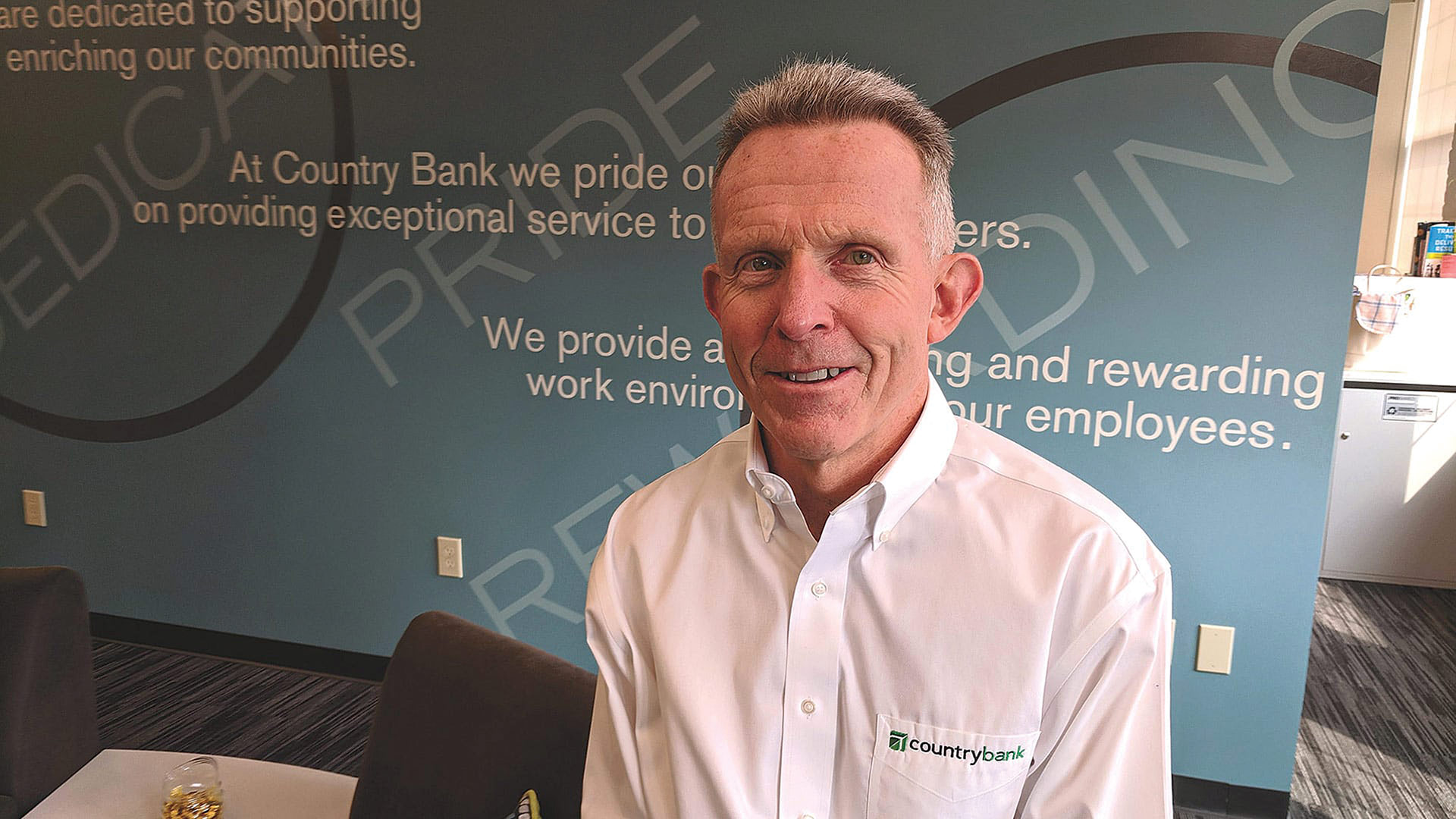
Paul Scully says much of Country Bank’s philanthropy in 2020 was directed at “COVID-related initiatives.”
Paul Scully says local philanthropy is baked into the DNA of this region’s financial institutions.
“Banks have always been great about supporting communities. And we are fairly philanthropic,” Country Bank’s president and CEO added, noting that the bank gave $1.3 million to local nonprofits last year, touching about 400 different organizations in some way.
Those numbers aren’t atypical. What made 2020 slightly different is where that money went.
“Of that, about a half-million went to what I would call COVID-related initiatives,” Scully said, citing causes ranging from equipping frontline workers at hospitals to meeting soaring demand at local food banks due to the pandemic’s economic impact on families.
At Freedom Credit Union’s April board meeting — the first one after it and the region’s other banking institutions closed their doors in mid-March — President and CEO Glenn Welch said he asked to make larger monthly donations to the community than usual.
“I told them, ‘I’m not sure what’s going to happen, but we need to support the community.’ The board agreed and allocated a chunk of money that we could utilize in the community.”
In the days that followed, Freedom announced a donation of $55,000 to be dispersed among several community organizations at the front lines of the local fight against the COVID-19 pandemic, including Baystate Health Foundation; Mercy Medical Center; Cooley Dickinson Health Care; the Food Bank of Western Massachusetts; Hampshire Hospitality Group, whose Hampshire County Heroes feed first responders in Hampshire County; and Feed the Fight, an initiative of Peter Pan Bus Lines and area restaurants to feed healthcare workers and first responders in the community.
“If you’re still employed with no interruption in your household income, you might not realize a lot people were living on a shoestring, and that shoestring broke. The opportunity to donate and give back is huge.”
“A lot of those are things we haven’t done every year,” Welch said, noting that the credit union’s philanthropic contributions were up 17% from 2019 to 2020, even though it was a tougher financial year for financial institutions.
It’s a story being told across the region — not that banks and credit unions are being more generous this year (although, in many cases, they are), but that the pandemic has revealed different needs, causing a shift in where those grants are being targeted.
In September, for instance, the Berkshire Bank Foundation contributed an additional $1 million — over its $3 million total annual grant budget — to collaborative efforts supporting nonprofit organizations responding to rising community needs, including MHA, the YMCA of Greater Springfield, Western Massachusetts SCORE, and the Community Foundation of Western Massachusetts, among others.
“The COVID-19 pandemic has affected our local communities in ways that no one could have predicted, and the economic impact has created significant challenges for organizations who help so many every day,” said Jim Hickson, Berkshire Bank’s Pioneer Valley regional president.
The foundation’s grants have supported community-based organizations in the areas of housing, food security, health supplies, student aid, small-business assistance — all needs that have been heightened by a pandemic whose impacts will continue to be felt well into 2021.
First Response
Some of the earliest contributions from banks and credit unions, at the start of the pandemic, were targeted to hospitals and first responders. Country Bank donated $250,000 to four local hospitals, and also gave $50,000 to the Hampden County Sheriff’s Department’s First Responder Recovery Home, which provided a safe haven for doctors, nurses, EMTs, police, firefighters, and corrections professionals who were diagnosed with COVID-19, but couldn’t safely go home to recover without jeopardizing the health of a vulnerable family member.

Glenn Welch
“I told them, ‘I’m not sure what’s going to happen, but we need to support the community.’ The board agreed and allocated a chunk of money that we could utilize in the community.”
As the pandemic evolved and other nonprofits began reshaping their missions to respond to it, Country Bank directed funds to organizations like the Community Foundation of Western Massachusetts, Springfield Rescue Mission, and Friends of the Homeless, as well as similar organizations in the Worcester area.
PeoplesBank’s charitable giving in 2020 surpassed its previous record high, totaling $1,300,000, and benefiting 292 different nonprofits in the region. While the long-standing funding priorities of PeoplesBank include education, community vibrancy, and environmental sustainability, support in 2020 also included donations to COVID-19 emergency relief funds, purchases of PPE for frontline responders, organizations fighting food insecurity and homelessness, and many area youth groups and early-childhood education centers.
“We try to say ‘no’ as infrequently as possible,” said Matt Bannister, the bank’s senior vice president of Marketing and Corporate Responsibility — even though last year’s needs definitely widened, especially considering that many nonprofits gain much of their funding from annual events that never happened.
“When the COVID hit the fan, we said to all our nonprofits we had agreements with, ‘we are going to honor all our commitments, even if you can’t hold your gala or your walk. The money’s still yours,’” Bannister said.
“The event may go away, but the need doesn’t,” he continued. “On one hand, if they don’t have the event, they don’t have to spend money on it, so that’s good. But these events are money makers. They were counting on this revenue. The visibility we get from these events is nice, but the real reason we do it is to support that cause, not because they put our logo on a T-shirt.”

Matt Bannister
“The event may go away, but the need doesn’t. On one hand, if they don’t have the event, they don’t have to spend money on it, so that’s good. But these events are money makers. They were counting on this revenue. The visibility we get from these events is nice, but the real reason we do it is to support that cause, not because they put our logo on a T-shirt.”
Kevin Day, president and CEO of Florence Bank, said his institution had no inclination to take back money spent to support such events.
“COVID drove everyone indoors this year, and a lot of events got canceled,” Day said. “We usually sign up for events, and we send money ahead of time. The nonprofits all reached out and said, “we’re not going to hold this ball or gala. Do you need the money back?’ But we’re here to support you, and the fact that you can’t throw a ball actually makes it more important that we support you. So even though we didn’t get to go to these events, we still made the donations; that didn’t change a bit.”
Later in the year, as nonprofits scrambled to find other ways to raise funds, banks looked for new ways to support them, Bannister added. “Like, the Community Foundation put together an emergency COVID fund — there’s a new need. We contributed to buy PPE for the frontline workers — that was something that wasn’t a need before. And a number of chambers put together microgrant programs for the members in their communities, with a special round of fundraising for that, and we supported that, too.”
Food for Thought
Like PeoplesBank, Florence Bank directs its philanthropy in a few general ways.
“We’ve always focused on what we call the three H’s: hungry, hurt, homeless. We thought food-insecure people having trouble getting food and buying food might be a big deal this year, so we said, ‘hey, let’s do everything we can in that area, if possible,’” Day said, adding that Florence has made good on that pledge by supporting 11 different food pantries and homeless shelters.
“We’ve always supported many of these organizations,” he was quick to add, but cast a wider net this year, donating nearly $100,000 to 10 organizations that address food insecurity.

Kevin Day
“We’ve always focused on what we call the three H’s: hungry, hurt, homeless.”
“We are so grateful. Without the support of donors, we would not have been able to continue our mission,” Ruben Reyes, executive director of Lorraine’s Soup Kitchen & Pantry in Chicopee, one of the recipients, said in December. “COVID has affected us very hard. All of our fundraisers were canceled, and we were very worried about how to fund our programs.”
Compounding the problem, COVID-19 has also affected Lorraine’s clientele. Reyes said he is seeing an additional 200 to 300 families each month, and provides a month’s supply of groceries and dinners five nights a week to a total of 600 to 700 families. “We’re seeing a lot more families who typically would not need pantry services. They are coming to our doors for the very first time.”
Meanwhile, Scully noted that a Greater Boston Food Bank report that food insecurity in Massachusetts reached an all-time high in November. The state has experienced a 59% increase since 2018, representing more than 1 million people in need of food assistance. Most people are using food pantries for the first time.
“We’ve seen the demand at the food banks, and in so many other different areas,” he told BusinessWest, noting that Country has donated more than $130,000 to local food pantries throughout the year. “We’ve always supported local food pantries and food banks, and we made significant contributions to them as well. Everyone is feeling the demands are greater than ever.”
As another example of the way financial institutions have rallied to the cause of food insecurity, Freedom Credit Union partnered with its members and the local community in December by matching funds donated to benefit the Pioneer Valley USO.
Located at Westover Air Reserve Base in Chicopee, that organization provides more than 102,000 pounds of food to more than 3,200 individuals annually through the Emergency Food Pantry, among other efforts.
“We’d heard that some of the people who serve us in the military are having trouble feeding their families, and the food pantries need to be stocked,” Welch said. “It’s pretty sad when people in the U.S. have to be going to the food banks, with the loss of jobs due to COVID. A lot of people are hurting this year.”
All the region’s banks and credit unions helped customers who were struggling financially in other ways as well, such as mortgage and loan deferrals and relief loans.
“All the institutions did a lot to help members by deferring payments and coming up with loan programs,” Welch said. “It’s important to help people out, and we’re still doing that.”
Community Partners
While food insecurity and other basic needs are front of mind these days, banks and credit unions support a host of other nonprofits as well, many of which rely on performances, events, and member activity to pay their bills. Many of these were able to pivot to virtual events to maintain connections with the community until they can go back to live events, but those don’t bring in nearly as much funding as in-person gatherings.
Through its philanthropic efforts, Scully said “what we try to do is help communities thrive, whether it’s economic health, physical health, or nutritional health. Put all those pieces together, and these communities will thrive. If there’s a need and we’re able to help satisfy some of these needs, we’ll do our part to the extent we can.”
That attitude, at most local financial institutions, extends beyond monetary donations into volunteerism, Bannister noted.
“We’ve averaged about 10,000 volunteer hours across the organization pretty consistently for the past four or five years,” he said, adding that the total in 2020 was closer to 5,000, due to organizations moving to remote operations and events being canceled. “That wasn’t from a lack of desire; people were concerned about going out in public, so there was a lack of opportunity. We expect that to come back this year as things start to open up again.”
At an employee giving campaign in November, the bank actually had more associates give more money this year than ever before, Bannister added. “That could have gone the other way. There’s a lot more economic insecurity out there. So that, to us, was a sign that folks are still engaged, and they still want to give.”
While nonprofits have cut back hours and volunteers can’t always come in, especially at organizations that deal with an older population. “people have been creative,” Scully said. “We work once a month with the Ware mobile food pantry. We were there the week before Christmas, and that had upwards of 300 cars coming in. They turned it into a mobile experience. There’s a group of us there, you’re outside, masks on. It’s a way to give back, volunteer, and be safe.”
After all, he added, people want to help, and so do banks.
Day said the outpouring of concern was so great in 2020 that some nonprofits actually weathered the early months of the pandemic well.
“In March, maybe the first week of April, I think my supposition would have been that everyone is going to be hurting instantly,” he said. “But I’m involved in several nonprofit boards, and across the region, many are saying their needs have been met, in my view, pretty well.”
But 2021 poses a trap of sorts.
“The critical aspect is coming in the next year,” Day said. “Many of them received a great deal of donations during this past year, and we’re happy to do our part. I think the needs will come as the recovery moves along this year, once the perception of need goes away.”
That’s because human needs are still great among families that come to nonprofits for help, especially those in the lower economic strata who have experienced economic devastation. “They’re going to need continued support, and I expect that need will continue through 2021, easily.”
Scully agreed. “The needs are greater than the average person realizes. If you’re still employed with no interruption in your household income, you might not realize a lot people were living on a shoestring, and that shoestring broke. The opportunity to donate and give back is huge.”
And will remain so going forward, Day added.
“We gave more money this year than we ever have, sprayed it around, touched every aspect of the nonprofit world,” he said. “People know we’re a good partner of the community, and we’re happy to help out those in need.”
Joseph Bednar can be reached at [email protected]
